
Sometimes going alcohol free is incredibly frustrating. Sure, there are plenty of mocktails and non alcoholic drinks, but they’re often simplistic or excessively sweet compared to what everyone else is drinking. Distilled non alcoholic spirits are a fantastic way around this issue.
Unlike mixers, these non alcoholic spirits are carefully crafted and designed to have the same complexity of flavor and texture as regular spirits like gin, whiskey, or even tequila. Yet, they do so little to no alcohol, which is an impressive feat.
Because these are alcohol free products, you might say they’re not spirits at all. But, they are used in the same way in many of the same situations, so the name distilled non alcoholic spirits has stuck. There are also some truly amazing entries in the mix.
In this post, we’re focusing on the more unusual non alcoholic spirits. Some of these are designed to mimic liqueurs or classic aperitifs, while others are entirely new (and often stunning!) creations. Stick around, though, as we’ll talk about more traditional spirits at the end.
Alcohol Free Spirits That You Should Try Today
Seedlip Spice 94

Seedlip is the company that started it all. They were the first ones to imagine that an alcohol free drink could have the same amount of complexity and nuance as a real cocktail or spirit. Talk about pioneers.
They started with the idea of distilling herbs using a copper still. The process grew to include multiple steps, including maceration, distillation, filtration, and careful blending – designed to create a complex flavor profile without any sugar or alcohol. As such, Seedlip spirits aren’t just alcohol free, they’re also good for you.
Seedlip Spice 94 was their first expression. It was released in 2015 and the first 1,000 bottles sold out in just a few weeks. These days, Seedlip is so popular that it is now stocked in many bars, giving non-drinkers more options than ever before.
Not surprisingly, Seedlip Spice 94 focuses on spice flavor tones. The most prominent flavors are cardamom and allspice, which are balanced with citrus and a touch of bitterness. While this flavor profile is very unusual, it does work well in many cocktails. Seedlip even provides a selection of ideas and recipes to help you get started.
There is one catch – the price. Because products like Seedlip are so complicated to make, they often cost just as much as regular spirits. Sometimes they’re even more expensive.
Seedlip Garden 108

Garden 108 is the herbal version of Seedlip. Oddly, the spirit features peas as a key flavor note, complemented by spearmint, thyme, and rosemary. Hops and even hay feature in the ingredients list as well.
The freshness and bright flavors could make this spirit an excellent alternative to gin. Seedlip even recommends pairing the spirit with tonic, giving you an interesting gin and tonic riff.
However, this product has a very unusual flavor profile, one that’s both complex and unexpected. Many people love it, while others simply can’t get into it.
If you’re considering this one for yourself, consider whether you want something familiar or something exciting. If you’re leaning towards familiar, then Garden 108 probably isn’t the right choice.
Curious Elixirs

Curious Elixirs takes a different approach. Rather than offering alcohol free spirits, they provide individual premixed cocktails. Their classic is Curious Elixir No. 1, which was inspired by the negroni sbagliato and relies heavily on pomegranate.
Their No. 2 focuses on ginger and lime instead, while No. 3 has an interesting blend of lemon, cucumber, and herbs. There are four other cocktails, all limited release, plus a subscription that ships out four flavors each month.
All of the cocktails have a strong natural focus. This includes relying on organic ingredients, while avoiding refined sugar, preservatives, sulfates, and fillers. Curious Elixirs also relies on a selection of herbs and adaptogens. These are meant to help with stress relief and could even improve your health.
With seven flavors to choose from, it shouldn’t be difficult to find at least one that you enjoy. Many reviewers talk about loving the complex flavors, especially as these are often quite different than in regular mocktails.
Seedlip Grove 42

Grove 42 is the final entry from Seedlip. This time the flavor profile focuses on blood orange, lemon peel, ginger, and lemongrass. These ingredients create a bright and refreshing combination of flavors.
While the flavor profile works well, this is the least popular Seedlip flavor. Part of the problem is that the taste is subtle. You need to add more syrup than you might expect to even be able to taste it, which sucks, as Seedlip is pretty expensive.
Also, because the flavor is so subtle, it’s easy for it to get drowned out by other ingredients in a cocktail.
Italian Spritz by Lyre’s

Lyre’s is a seriously impressive brand. They’re particularly well known for non alcoholic versions of the classic spirits, like gin, whiskey, rum, and tequila. However, they have a host of other options too.
Their Italian Spritz was inspired by Aperol, so it offers sweet and bright citrus notes, along with plenty of bitterness. The flavors are well balanced and complement each other well.
Like Aperol, you can drink Italian Spritz on its own or mix it with other ingredients. The best approach is to combine it with non alcoholic sparkling wine (Lyre’s has an excellent version called Classico Grande). Doing so gives you the flavor and fizz of a classic Aperol spritz, with none of the booze.
Rāsasvāda Rose Bergamot

The drinks from Rāsasvāda are a little different than expected, as the company strongly emphasizes health. The drinks rely on a combination of plants, herbs, and flowers, many of which have a role in folk medicine.
Rāsasvāda Rose Bergamot is particularly interesting, as it combines bright citrus flavors with bitterness and distinct hibiscus notes. The balance of sweet and savory works well in many cocktails, although the spirit can be enjoyed neat as well.
The flavor profile is more elegant than many other non alcoholic spirits. Plus, this product isn’t trying to mimic any conventional beverage. As a result, it has a unique and exciting flavor profile. This approach is also helpful, as it stops you from comparing it to other spirits.
Rāsasvāda Black Ginger

Speaking of Rāsasvāda, here’s a second product to consider Rāsasvāda Black Ginger. The spirit is herbal and bittersweet, with intense flavors that you won’t quickly forget.
This entry lives up to its namesake too, as black ginger really is used as an ingredient. Dark roasted chicory, saffron, and red turmeric feature as well. The unusual herbs contribute to the interesting flavor and could even help improve your health.
There is some sweetness to the drink too. This mostly comes from pomegranate molasses, rather than from any type of refined sweetener. This ingredient adds to the flavor of the drink, making it much more interesting still.
Needless to say, this spirit will divide people. While many will love the intensity of the flavor profile, others will find it to be far too much. And, if you want a product that tastes like a regular spirit or liqueur, this certainly isn’t it.
Verbena by Bax Botanicals

Bax Botanicals is a U.K. company, but they have some connections to American distributors, so you can find their products locally. Their Verbena is a particularly interesting entry and receives consistently good reviews.
The flavor profile has distinct lemon notes, coupled by anise and menthol, plus underlying florals. The herbal nature means you could use this spirit as an alternative to gin, although Verbena certainly isn’t an exact match.
The spirit is best used in vibrant cocktails. Even just mixing it with tonic water or soda water is enough to give you a bright and delicious drink. However, Verbena isn’t designed to be consumed neat and tastes much better when used with some type of mixer.
Seaward by Pentire

Seaward is a distinctive drink that includes notes of sea rosemary, seaweed, sea buckthorn, woodruff, and pink grapefruit. The ingredients come from the North Cornwall coastline, which helps explain the drink’s unusual nature.
The flavor profile has distinct citrus elements from the grapefruit, underpinned with natural green elements from the other ingredients. While the use of seaweed in a spirit is incredibly unusual, somehow the flavors all come together well.
Pentire suggests pairing the spirit with soda water or a light tonic water. You could combine it with other ingredients too. Just make sure the ingredients you use don’t overpower the nuances of Seaward.
Adrift by Pentire

Adrift is a second spirit from Pentire and follows many of the same themes. This time lemon provides the key citrus notes. This is then balanced by sage, sea salt, rock samphire, and a plant blend – a combination that creates distinct herbal and grassy notes.
Overall, the flavor is fresh and nuanced, making it a perfect complement to light tonic water. Adrift is also drier than Seaward, making it perfect for anyone who doesn’t want too much sweetness.
Pentire’s drinks truly are distinctive. You won’t find the same ingredients or flavor balance anywhere else. That’s enough of a reason to try one of them for yourself.
Earthen by Wilderton

Wilderton is another fascinating brand, partly because their spirits rely on tea distillates to create their incredible flavor profiles. Their Earthen spirit is a fantastic example and offers a delicious spicy flavor balance coupled with plenty of smokiness.
You could even use this spirit as an alternative to whiskey in some cocktails. While it doesn’t have the same flavor profile as whiskey, it does create the same general sense.
Earthen can be enjoyed on its own or in a cocktail. However, if you’re using it on its own, be prepared for a strong flavor hit.
Lustre by Wilderton

Then there’s Lustre, which also comes from Wilderton and has a flavor profile all of its own. This time there are strong orange flavor tones, contrasted by lavender and tarragon.
While this one mixes well with tonic water too, you can make it more interesting by experimenting with fresh juice or coconut water. It’s surprisingly good in iced tea as well, making your drink much more interesting.
Livener by Three Spirit

Three Spirit uses the term ‘botanical alchemy’ to describe their products, which proves you’re getting something unexpected. The focus here isn’t on what has been removed from your drink (i.e. the alcohol), but what has been added instead.
In particular, Three Spirit uses various healthy plant-based ingredients, including nootropics, adaptogens, and multiple distillates. This approach means that the drinks aren’t just better than alcohol, they could even directly improve your health.
There is an equally strong focus on flavor profile, with a process that includes maceration, fermentation, distillation, extraction, and other steps. So, it’s not surprising that the drinks all taste stunning.
Livener is one of three flavors from the company. It’s promoted as being energizing, fiery, and exotic – making it an alcohol alternative that you won’t soon forget. The main ingredients include an unusual berry from Siberia called Schisandra, Amazonian holly, and watermelon.
The flavor profile is interesting too, with notes of berries and beets, plus contrasting ginger. Some people use this flavor as a palate cleanser and a pick me up, particularly as it contains a decent amount of caffeine.
The Social Elixir by Three Spirit

The Social Elixir also comes from Three Spirit and is promoted as a mood elevator and social companion. These effects are associated with the natural ingredients, including yerba mate, damiana, and lion’s mane mushroom.
It would be pretty cool if an alcohol free spirit really did give you a social boost. After all, that type of boost is one reason that so many of us drink alcohol to begin with.
Three Spirit doesn’t give much away about the flavor, but reviewers suggest there are strong tomato flavor tones, with notes of berries and some bitterness. While this isn’t a common flavor profile at all, some people do love it (it might be particularly delightful if you love a good Bloody Mary).
Hemp and Root by The Pathfinder

The Pathfinder is another company that attempts to meld alcohol free drinks with health benefits. This time there’s just one product – Hemp and Root. As the name suggests, this spirit relies on hemp. The hemp is carefully distilled to create an elixir, which is then blended with other botanicals.
Interestingly, the plant selection and distillation processes ensure that there is no CBD or THC in the finished spirit. The lack of CBD reduces the potential health benefits from the hemp. Instead, the ingredient is mostly used for its flavor (although you still get some important nutrients and omega 3 fatty acids).
The focus on botanicals makes this spirit a little like gin. However, the flavor profile truly is distinctive. You won’t find a drink like this anywhere else.
Smokey by Optimist Botanicals

Smokey is promoted as a mezcal alternative, but it’s really a unique spirit in its own right. There are distinct spicy notes, along with florals, bitterness, and charred wood. So, it really does live up to the Smokey name.
Each of the expressions from Optimist Botanicals is carefully developed. There is a separate distillation process for each of the ingredients, helping to create clean and clear flavors. Then the distillates are balanced and blended, leading to a balanced and very distinctive spirit alternative.
While this expression can be used as a mezcal alternative, it has a exceptional flavor profile all of its own.
Cali Amaro by Optimist Botanicals

Here’s a second entry from Optimist Botanicals. Cali Amaro is a bright orange spirit, with citrus, herbal, and woody flavors, plus distinct bitterness.
The flavor is best compared to an old-school amaro liqueur. However, there’s an interesting Californian twist to this liqueur, which creates a brighter flavor profile.
So, what do you do with it? You could drink Cali Amaro on ice. The flavor profile is interesting enough for this use. Or, you could use it in a cocktail, like perhaps an amaro cocktail. If none of those approaches sound right, why not experiment and make your own cocktail recipes?
Bright by Optimist Botanicals

Our final entry from Optimist Botanicals is Bright. Not surprisingly, this one has a vibrant flavor profile, featuring herbs, light floral flavors, and plenty of citrus.
Optimist Botanicals suggests that this is much like a lemon vodka. So, why not try it in cocktails that rely on lemon or citrus vodka? Of course, this spirit is more complex than vodka, so it will add new layers to whatever drink you choose.
You could easily make your own cocktails with this one too. One reviewer mentioned that combining this with Vitamin Water worked surprisingly well. Another talked about using it with sparkling water.
SACRÉ Zero Proof

SACRÉ is promoted as a unique and ‘mysteriously flavored’ drink, which should be enough to pique anyone’s curiosity. It truly is unusual too, as the company has used fermented maple syrup and coffee as the base ingredients.
This combination creates a sweet and distinctive flavor, yet the drink is surprisingly low in sugar and calories. You could easily use the spirit as a substitute for Kahlua or amaro.
Reviews tend to be positive, although some people mention there’s a surprisingly strong vinegar hit in the body of the drink that can be off-putting. That hit of vinegary sourness would also make this drink a little tricky in cocktails.
Still, the focus on maple and coffee is unusual. Few other non alcoholic spirits use these ingredients. You might even find that you enjoy the sour hit, especially if you’re not a fan of overly sweet drinks.
Aperitif Dry by Lyre’s

Aperitif Dry is a second entry by Lyre’s and one that receives consistently good reviews. It’s a clear spirit that’s designed to resemble dry vermouth but also has some distinct flavors of its own.
Notes of citrus and herbs are prominent in the spirit, along with some floral tones and a little saline. You could combine this with non alcoholic gin to make a martini, but many people drink the spirit on its own instead or simply combine it with tonic.
Coffee Originale by Lyre’s

Not surprisingly, Coffee Originale mimics the flavors of a coffee liqueur. It offers the expected coffee flavor, along with spices, caramel, vanilla, and even a little nuttiness.
This type of liqueur makes it easy to create your own versions of alcohol free coffee cocktails or to simply add extra coffee flavor to any other drink. Some reviewers even mention that this tastes like Kahlua, which is fantastic news.
Aperitif Rosso by Lyre’s

Aperitif Rosso is a little unusual, as it was inspired by aromatic vermouth. The flavor profile includes a strong hit of blood orange and vanilla, complemented by notes of citrus, caramel, and cacao. It’s a delightful combination all around, especially if you want something a little different.
The complex flavor profile means you don’t need to add much to this spirit. Even a little tonic water or soda water is enough to create a delicious cocktail. Tonic water is a particularly good addition, as it brings out the complexity of the spirit.
Lyre’s also suggests making an Americano mocktail by combining this with their Italian Orange and plenty of tonic water. While the Americano traditionally relies on soda water, that version ends up being too sweet when you’re using spirits from Lyre’s. Tonic water is a much better ingredient.
Bittersweet Aperitivo by Wilderton

Bittersweet Aperitivo is a Wilderton product. This one focuses on flavors of grapefruit and orange blossom, plus plenty of herbs. It follows a similar idea as many bittersweet Italian aperitifs, although it is more heavily on the bitter side (there’s some sweetness, but not a lot).
The familiarity makes Bittersweet Aperitivo a little easier to use than the Lustre and Earthen entries by Wilderton. So, it’s a useful ingredient when you want something that’s a touch more familiar.
Amaretti by Lyre’s

Here’s one more entry from Lyre’s – Amaretti. It’s another drink that’s designed to mimic a classic liqueur. And, indeed, Amaretti does have familiar flavor notes, including a strong taste of almonds, coupled by just enough spice and vanilla to keep things interesting.
The flavor is surprisingly close to the alcoholic version – and even has a familiar color. Some reviewers mention that it doesn’t have as much bite, but others seem perfectly content.
As you can see, Lyre’s really is an exceptional brand. They have plenty of products and most are surprisingly close to their alcoholic counterparts. We’ve featured five of their best on this list, but there are others that didn’t make the cut.
Floral Wormwood by Gnista

Floral Wormwood by Gnista is an intense drink with some similarities to amaro. It includes plenty of aromatic compounds, plus wormwood and some orange peel.
Perhaps the most notable feature is that this spirit is relatively intense. Many other non alcohol spirits tend towards being nuanced, which can make them a little boring. The strong flavor also means this spirit is an excellent cocktail ingredient.
More Info
In this list, we’ve focused on unusual non alcoholic spirits. Some of these are in a class of their own, with distinct tastes and ingredients that you won’t find elsewhere. Others focus on the flavors of other popular ingredients, like vermouth or Aperol.
However, that’s not the only style. Many products are designed to mimic the appearance and taste of traditional spirits. For more details on those, check out our lists of alcohol free whiskey, bourbon, tequila, and gin.
Alcohol free spirits like those never entirely taste like their alcohol containing counterparts, but some are surprisingly close. A few companies even mimic some of the burn that you get when drinking a spirit, while others have found just the right balance of flavor tones.
Finally, some alcohol free products haven’t made this list because they aren’t distilled. For example, Sexy AF and Arkay both produce alcohol free spirits that work well in cocktails, but their products don’t have the same complexity as the ones included in this list.
The lack of complexity also means that such spirits don’t perform well when served neat. However, such products still work well in cocktails. They’re often cheaper than distilled products too, which can be helpful.

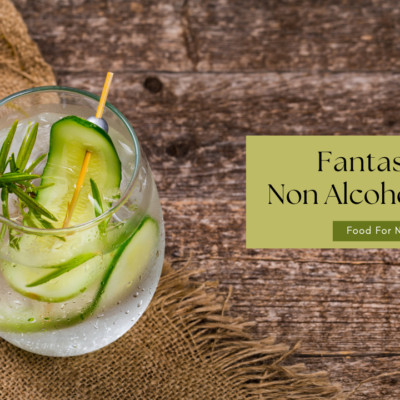

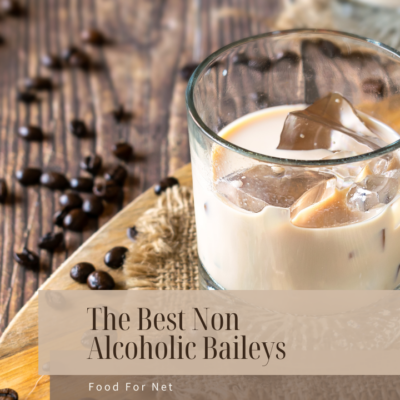
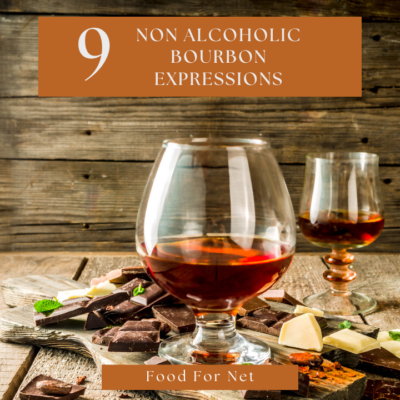
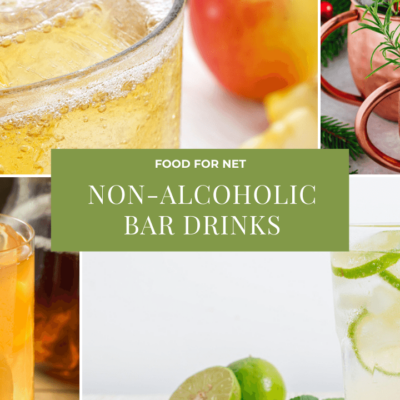

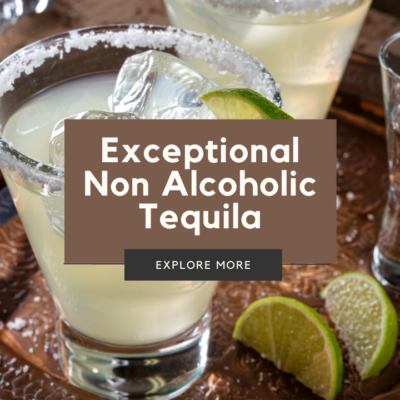

 9 Non Alcoholic Gin Expressions To Get You Through Dry January And Beyond
9 Non Alcoholic Gin Expressions To Get You Through Dry January And Beyond
Leave a Reply